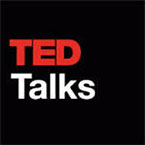By the day it becomes more and more clear that the world suffers from the emergence of a nonproductive, self-enriching arm of capitalism, operating in isolation. The merchant bankers , like Goldman Sachs. The documentary ‘ Inside Job’ shows this convincingly. It is seldomly mentioned, but I have the impression it all started when banks became listed at the stock market . From that moment on, their only interest was to maximize their profits, collectively and individually. The money, people put innocently in their bank account to safe for worse times, were put at high risk by these banks for short term gains, keeping only a few percent of the money in their reserve. This has to stop. And that is what the movement ‘ Occupy Wall Street’ is all about.
The Nobel laureate and columnist for the New York Times Paul Krugman suggested not to safe the banks and the bankers but the people who lost their houses and their jobs. We should help the Greeks to collect taxxes and to grow their economy, but not the foreign banks that own the dept of Greece. It makes no sense to give the Greek government billions to pay their depts, money that ends up in a matter of hours into the accounts of French, German or Dutch banks. And subsequently in the pockets of the individual bankers. Our economic system is broken and needs fixing. As Paul Krugman puts it in his column in the International Herald Tribune of tuesday October 18,2011: ” The era of an ever- growing financial industry was also an era of ever-growing inequality of income and wealth. ” The Netherlands prouded itself with its enormous banking industry, the ING, the RABO and the ABN, ignoring that the industry making innovative products lagged behind. Now the country is suffering from this inbalance.
We badly need a new way of looking at the economy, a way politicians can not ignore. A way that breaks the power of the bankers and the banks. The invisible hand of Adam Smith did not exactly force the greedy banker to produce the greatest good for all. Adam Smith promoted the idea that individual behavior in the market would eventually impact the whole market in a beneficial way. Unfortunately it didn’t work out that way , which the current monetary crisis blatantly showed.
In his recent book, ” the Darwin Economy” , the Cornell economist Robert H. Frank, published in 2011, argues that the current times can best be understood by not applying the rules of Adam Smith but the game plans of Charles Darwin. It implies that evolutionary principles rule economic behavior and not so-called economic or market rules. The banker takes care of him or herself and may be of his banker friends, but for sure not of the home owner, who should never have gotten a mortgage he can not afford to pay longer than a few weeks or so. And because of all of this, the mortgage owner eventually also lost his or her job. Today , a recent report showed, 49 million Americans live in poverty.
A lot of fallacies came to light during the current financial crisis. The governments of the world generally do their best to discourage negative emotions in society , negative emotions like envy and jalousy. The system, governments like most to do this ,is the tax code . Adam Smith had the concept that the more perfect and complete the competition , the more behaviors will promote the common good and taxation should reflect this. Charles Darwin saw it a little differently and as Frank argues, a lot more accurately. When group interests diverge from individual interests, generally the individual interest wins, as Darwin points out. But can government remedy these ailments? Governments over time tend to spend more and more money on themselves, -the equivalent of waste-, and less and less in the interest of the people. However, no institution can substitute government as the taxpayers instrument to fight excesses by individual members of society.
Everybody benefits if the government and government institutions waste as little money possible, but because of it’s naturally amateuristic nature, some waste will always be around. Too much money for the government is less dangerous, as it appears ,as too little. But in the end people have to trust that their tax money is generally well spend and if not, that trust wains with populistic antigovernment movements as a result. Bankers profit-sharing and bank earnings ,as Frank implies in his book, may be considered the biggest waste of society, far more consequential than the waste of the government. This is not to say that at all times government waste and self-serving activities should be counteracted to keep confidence in government justified.
But from the financial crisis in Europe it is learned that many governments build up more dept than is good for the people and that governments in the EU have a hard time to find satisfactory solutions, that do not make their populations suffer even more. At the same time governments in many countries were forced to nationalize their biggest banks in order to safeguard savings of small households , while the bankers walked away with millions of unjustified earnings .
Frank argues in a very interesting direction. His train of thought is that if the rich and famous would spend less or show a less opulent lifestyle, than that would influence the middle class to do the same. This in turn would prevent the middle-class to spend more than they earn, one of the biggest problems of today. Frank argues for a progressive consumption tax, the more you save (or invest) the less tax you pay and the more you proportionally spend on consumer goods the more tax you pay. Savings in this system should not be taxed, neither should investments. Subsequently the key question is: on what should the government spend it’s tax money ?The easy answer is on public goods, but than we should agree what to consider public goods. The good news is that the more people earn the more willing they are to provide the government with money for public goods.
Clean air, safe drinking water and uncontaminated food are simple and logical public goods that the government should provide or safeguard. Less obvious is education and health care, because of the question how much of it should be provided. All air, all drinking water and all food should be safe and in enough supply to lead a healthy life. Education and healthcare come in many flavors. According to Frank, the richer people are the more one is willing to pay for public goods. Frank argues that the only way to pay for the access to public goods for all, is by progressive taxation. But he sees the caveat clearly: politicians should recognize the willingness to pay for some goods but not for all.
Frank present an interesting case: should soft drinks be taxed heavily because if consumed for too long and too often , one may end up with diabetes and all ills associated with it. People consider taxing goods, like cigarettes, because they might cause harm to others, like smoking in public places, a good thing in parallel to forbidding too smoke in public. This suggests that people accept that action that may result in harm now and today to the people around us , is completely acceptable. But apparently people do not think like that about forbidding soft drink vendor machines in parallel with a soft drink discouragement tax. The reason may be ,as Frank argues, that future harm to oneself in the far future is not accepted as a reason for taxation or forbidding the use all together.
The economist Greg Mankiw wrote in the New York Times of June 5, 2010:” Taxing soda may encourage better nutrition and benefit our future selves. But so could taxing candy, ice cream, and fried foods. Subsiding broccoli, gym memberships and dental floss comes next. Taxing mindless television shows and subsidizing serious literature cannot be far behind.”
This represents the slippery slope of the state pretending that it knows best.The thought of misuse of this kind of reasoning to enrich the state and it’s civil servants, will sooner or later come to every one’s mind. Banks are not a public good and particularly not when they are listed at the stockmarket, like most banks nowadays. Banks should not be subsidized nor overtaxed. But what about providing free education and health care. The simple answer is yes to give everybody access to a change in life, because we know that the more educated you are, the better your chances to make a living.
Unfortunately nothing is simple. The education should be good and the certificate of this education so well-respected that it represents a job advantage. Poor education that still earns you a degree, is not much better than no degree, although many will argue against this statement. But how good, I would say so good that it maximizes a persons opportunities and thereforHarvard or Oxford are at the upper end, but where do we place the bar?The same is true for health care: what is the minimal health care all should get.It should be for sure all the care for children and young adults that helps them to earn a living, but should it include all the care available for the pensioners or only for those that still work?
The ” Occupy Wall Street” movement specifically claims that they do not know the answers to the mess we are in, but that they know what they do not like when they see it. Many economists, famous and infamous claimed to understand what caused the current economic, political and social crisis, but they clearly didn’t , to the extend that we have to ask ourselves if economy is a science, an art or even a skill. We should care about and take care of the public and common good at a price that is fair to all. But who should take care of that for us? The politicians , who only take care of themselves? Who should we ask to take care of the common goods? Who should represent us? Do political parties make sense in these difficult times, if they only know to use retoric from past times and safe banks before anything else? Occupy Wall Street wants the answer as much as I, but where do we find the answers?




